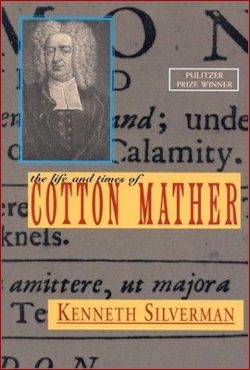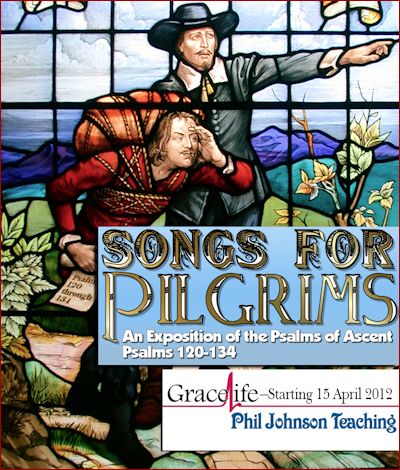posted by Phil Johnson

The PyroManiacs devote some space each weekend to highlights from The Spurgeon Archive. Here are a few resources from the Prince of Preachers on a topic he was intimately familiar with:
From The Soul Winner (chapter 9, "The Cost of Being a Soul Winner"):
 ome years ago, I was the subject of fearful depression of spirit. Certain troublous events had happened to me; I was also unwell, and my heart sank within me. Out of the depths I was forced to cry unto the Lord. Just before I went away to Mentone for rest, I suffered greatly in body, but far more in soul, for my spirit was overwhelmed.
ome years ago, I was the subject of fearful depression of spirit. Certain troublous events had happened to me; I was also unwell, and my heart sank within me. Out of the depths I was forced to cry unto the Lord. Just before I went away to Mentone for rest, I suffered greatly in body, but far more in soul, for my spirit was overwhelmed.Under this pressure, I preached a sermon from the words, "My God, My God, why hast Thou forsaken Me?" I was as much qualified to preach from that text as ever I expect to be; indeed, I hope that few of my brethren could have entered so deeply into those heart-breaking words. I felt to the full of my measure the horror of a soul forsaken of God. Now, that was not a desirable experience. I tremble at the bare idea of passing again through that eclipse of soul; I pray that I may never suffer in that fashion again unless the same result should hang upon it.
That night, after sermon, there came into the vestry a man who was as nearly insane as he could be to be out of an asylum. His eyes seemed ready to start from his head, and he said that he should utterly have despaired if he had not heard that discourse, which had made him feel that there was one man alive who understood his feeling, and could describe his experience. I talked with him, and tried to encourage him, and asked him to come again on the Monday night, when I should have a little more time to talk with him.
I saw the brother again, and I told him that I thought he was a hopeful patient, and I was glad that the word had been so suited to his case. Apparently, he put aside the comfort which I presented for his acceptance, and yet I had the consciousness upon me that the precious truth which he had heard was at work upon his mind, and that the storm of his soul would soon subside into a deep calm.
"The Almighty hath vexed my soul," after the service, in walked this self-same brother who had called on me five years before. This time, he looked as different as noonday from midnight, or as life from death. I said to him, "I am glad to see you, for I have often thought about you, and wondered whether you were brought into perfect peace." I told you that I went to Mentone, and my patient also went into the country, so that we had not met for five years.
To my enquiries, this brother replied, "Yes, you said I was a hopeful patient, and I am sure you will be glad to know that I have walked in the sunlight from that day till now. Everything is changed and altered with me."
Dear friends, as soon as I saw my poor despairing patient the first time, I blessed God that my fearful experience had prepared me to sympathize with him and guide him; but last night, when I saw him perfectly restored, my heart overflowed with gratitude to God for my former sorrowful feelings. I would go into the deeps a hundred times to cheer a downcast spirit: it is good for me to have been afflicted that I might know how to speak a word in season to one that is weary.
Suppose that, by some painful operation, you could have your right arm made a little longer, I do not suppose you would care to undergo the operation; but if you foresaw that, by undergoing the pain, you would be enabled to reach and save drowning men who else would sink before your eyes, I think you would willingly bear the agony, and pay a heavy fee to the surgeon to be thus qualified for the rescue of your fellows.
Reckon, then, that to acquire soul-winning power you will have to go through fire and water, through doubt and despair, through mental torment and soul distress. It will not, of course, be the same with you all, nor perhaps with any two of you, but according to the work allotted you, will be your preparation. You must go into the fire if you are to pull others out of it, and you will have to dive into the floods if you are to draw others out of the water. You cannot work a fire-escape without feeling the scorch of the conflagration, nor man a lifeboat without being covered with the waves. If Joseph is to preserve his brethren alive, he must himself go down into Egypt; if Moses is to lead the people through the wilderness, he must first himself spend forty years there with his flock. Payson truly said, "If anyone asks to be made a successful minister, he knows not what he asks; and it becomes him to consider whether he can drink deeply of Christ's bitter cup and be baptized with His baptism."
And from the same book, chapter 14:
 often feel very grateful to God that I have undergone fearful depression of spirits. I know the borders of despair, and the horrible brink of that gulf of darkness into which my feet have almost gone; but hundreds of times I have been able to give a helpful grip to brethren and sisters who have come into that same condition, which grip I could never have given if I had not known their deep despondency. So I believe that the darkest and most dreadful experience of a child of God will help him to be a fisher of men if he will but follow Christ.
often feel very grateful to God that I have undergone fearful depression of spirits. I know the borders of despair, and the horrible brink of that gulf of darkness into which my feet have almost gone; but hundreds of times I have been able to give a helpful grip to brethren and sisters who have come into that same condition, which grip I could never have given if I had not known their deep despondency. So I believe that the darkest and most dreadful experience of a child of God will help him to be a fisher of men if he will but follow Christ.















 There's nothing inherently wrong with fame, of course. But a love of fame for fame's sake—the modern notion of celebrity—is deadly, especially in the church. We ought to learn the lessons of our own past, and we ought to heed the words of the Lord Jesus, who said, "Whoever would be great among you must be your servant, and whoever would be first among you must be your slave, even as the Son of Man came not to be served but to serve, and to give his life as a ransom for many" (Matthew 20:26-28).
There's nothing inherently wrong with fame, of course. But a love of fame for fame's sake—the modern notion of celebrity—is deadly, especially in the church. We ought to learn the lessons of our own past, and we ought to heed the words of the Lord Jesus, who said, "Whoever would be great among you must be your servant, and whoever would be first among you must be your slave, even as the Son of Man came not to be served but to serve, and to give his life as a ransom for many" (Matthew 20:26-28).

 ertain persons call themselves "cultured," and yet they cultivate nothing. Modern thought, as far as I have seen anything of its actual working, is a bottle of smoke, out of which comes nothing solid; yet we know men who can distinguish and divide, debate and discuss, refine and refute, and all the while the hemlock is growing in the furrow, and the plough is rusting.
ertain persons call themselves "cultured," and yet they cultivate nothing. Modern thought, as far as I have seen anything of its actual working, is a bottle of smoke, out of which comes nothing solid; yet we know men who can distinguish and divide, debate and discuss, refine and refute, and all the while the hemlock is growing in the furrow, and the plough is rusting.
 e're often told by gurus of church-growth and guardians of postmodern values in the evangelical community that we mustn't erect "boundaries."
e're often told by gurus of church-growth and guardians of postmodern values in the evangelical community that we mustn't erect "boundaries."







 ie I must—this body must be a carnival for worms; it must be eaten by those tiny cannibals; peradventure it shall be scattered from one portion of the earth to another; the constituent particles of this my frame will enter into plants, from plants pass into animals, and thus be carried into far distant realms; but, at the blast of the archangel's trumpet, every separate atom of my body shall find its fellow; like the bones lying in the valley of vision, though separated from one another, the moment God shall speak, the bone will creep to its bone; then the flesh shall come upon it; the four winds of heaven shall blow, and the breath shall return.
ie I must—this body must be a carnival for worms; it must be eaten by those tiny cannibals; peradventure it shall be scattered from one portion of the earth to another; the constituent particles of this my frame will enter into plants, from plants pass into animals, and thus be carried into far distant realms; but, at the blast of the archangel's trumpet, every separate atom of my body shall find its fellow; like the bones lying in the valley of vision, though separated from one another, the moment God shall speak, the bone will creep to its bone; then the flesh shall come upon it; the four winds of heaven shall blow, and the breath shall return.
 ast week during the Shepherds' Conference John MacArthur was presented with one of the first copies of the Arabic version of the MacArthur Study Bible. The Bibles were printed and officially released a couple of weeks ago in Beirut, Lebanon, and the first printing sold out immediately. A few copies were sent to America to be on display during the Shepherds' Conference.
ast week during the Shepherds' Conference John MacArthur was presented with one of the first copies of the Arabic version of the MacArthur Study Bible. The Bibles were printed and officially released a couple of weeks ago in Beirut, Lebanon, and the first printing sold out immediately. A few copies were sent to America to be on display during the Shepherds' Conference.













